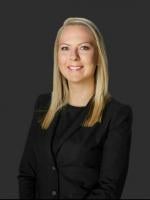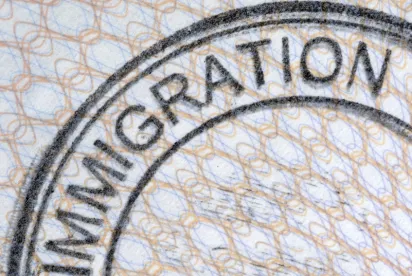On Aug. 12, 2020, the Department of State updated its guidance on the National Interest Exception (NIE) to the June 22 Presidential Proclamation 10052, which extends Presidential Proclamation 10014 through Dec. 31, 2020. Under this updated guidance, individuals subject to the Presidential Proclamations may seek to obtain an H or L visa if they are returning to the United States to continue previously approved employment with the same employer in the same visa category. In addition, the Department of State has provided other financial hardship criteria. This expanded guidance is in addition to the exceptions already in place.
Individuals subject to the Proclamations may request an NIE by following the guidelines of their nearest U.S. Embassy or Consulate, as this process may vary depending on the jurisdiction. Visa applicants may qualify for an NIE if they meet one of the criteria listed below:
H-1B Visa Applicants:
-
The applicant is a public health or health care professional or researcher, travelling for the purpose of alleviating the effects of Coronavirus Disease 2019 (COVID-19), or to conduct ongoing medical research in an area with a substantial public health benefit.
-
The applicant’s travel is supported by a request from a U.S. government agency or entity to meet critical U.S. foreign policy objectives or to satisfy treaty or contractual obligations.
-
The applicant is seeking to resume ongoing employment in the United States in the same position with the same employer and visa classification.
-
The applicant is a technical specialist, senior level manager, or other worker whose travel is necessary to facilitate the immediate and continued economic recovery of the United States. Consular Officers may determine that an H-1B applicant falls into this category when at least two of the following criteria are met:
1. The petitioning employer has a continued need for the visa applicant’s services in the United States. This can be established if a Labor Condition Application (LCA) has been approved by the Department of Labor (DOL) during or after July 2020. If the LCA was approved before July 2020, the visa applicant must evidence the employer’s need to employ the visa applicant. Regardless of when the LCA was approved, if an H-1B visa applicant is currently performing or is able to perform the essential functions of their position remotely from outside the United States, then this criterion cannot be met.
2. The applicant’s proposed job duties or position within the petitioning company indicate the individual will provide significant and unique contributions to an employer meeting a critical infrastructure need.However, employment in a critical infrastructure sector alone is not sufficient; the applicant also needs to hold one of the following positions:
a) Senior level placement within the petitioning organization or job duties reflecting performance of functions that are both unique and vital to the management and success of the overall business enterprise; OR
b) The applicant’s proposed job duties and specialized qualifications indicate the individual will provide significant and unique contributions to the petitioning company.
3. The wage rate paid to the H-1B applicant meaningfully exceeds the prevailing wage rate by at least 15%.
4. The H-1B applicant’s education, training and/or experience demonstrate unusual expertise in the specialty occupation in which the applicant will be employed.
5. Denial of the visa under Presidential Proclamation 10052 will cause financial hardship to the U.S. employer. Financial hardship can include the employer’s inability to meet financial or contractual obligations; the employer’s inability to continue its business; or a delay or other impediment to the employer’s ability to return to its pre-COVID-19 level of operations.
L-1A Visa Applicants:
-
The applicant is a public health or health care professional, or researcher travelling to alleviate the effects of the COVID-19 pandemic, or to conduct ongoing medical research in an area with a substantial public health benefit.
-
The applicant’s travel is based on a request from a U.S. government agency or entity to meet critical foreign policy objectives or satisfy treaty or contractual obligations.
-
The purpose of the applicant’s travel is to resume ongoing employment in the United States in the same position with the same employer and visa classification.
-
The applicant is a senior level executive or manager filling a critical business need of an employer meeting a critical infrastructure need. An L-1A applicant falls into this category when at least two of the following criteria are met:
1. The applicant will be a senior-level executive or manager in the U.S.;
2. The applicant has spent multiple years with the company overseas, indicating a substantial knowledge and expertise within the organization that can only be replicated by a new employee within the company following extensive training that would cause the employer financial hardship; or
3. The applicant will fill a critical business need for a company meeting a critical infrastructure need.
-
Individuals seeking to establish a new office in the U.S. will need to establish two of the above criteria and establish that the new office will employ, directly or indirectly, five or more U.S. workers.
L-1B Visa Applicants:
-
The applicant is a public health or healthcare professional, or researcher travelling to alleviate the effects of the COVID-19 pandemic, or to conduct ongoing medical research in an area with a substantial public health benefit.
-
The applicant’s travel is based on a request from a U.S. government agency or entity to meet critical foreign policy objectives or satisfy treaty or contractual obligations.
-
The applicant is seeking to resume ongoing employment in the United States in the same position with the same employer and visa classification.
-
The applicant is a technical expert or specialist meeting a critical infrastructure need. The Consular Officer may determine that an L-1B applicant falls into this category if all three of the following indicators are present:
1. The applicant’s proposed job duties and specialized knowledge indicate the individual will provide significant and unique contributions to the petitioning company;
2. The applicant’s specialized knowledge is specifically related to a critical infrastructure need; AND
3. The applicant has spent multiple years with the company overseas, indicating a substantial knowledge and expertise within the organization that can only be replicated by a new employee within the company following extensive training that would cause the employer financial hardship.
H-2B Visa Applicants:
-
The applicant’s travel is based on a request from a U.S. government agency or entity to meet critical foreign policy objectives or to satisfy treaty or contractual obligations.
-
The applicant’s travel is necessary to facilitate the immediate and continued economic recovery of the United States. Consular Officers may determine that an H-2B applicant’s travel falls into this category when at least two of the following are met:
1. The applicant was previously employed and trained by the petitioning U.S. employer. The applicant must have previously worked for the petitioning U.S. employer under two or more H-2B petitions.
2. The applicant is traveling based on a temporary labor certification (TLC) that reflects continued need for the worker. This can be established if a TLC has been approved by the DOL during or after July 2020. If the TLC was approved before July 2020, the visa applicant must evidence the employer’s need to employ the visa applicant.
3. Denial of the visa pursuant to Presidential Proclamation 10052 will cause financial hardship to the U.S. employer.
J-1 Visa Applicants:
-
The applicant is an au pair possessing special skills required for the care of a minor U.S. citizen, legal permanent resident, or nonimmigrant in lawful status child with particular needs.
-
The applicant is an au pair and the applicant’s travel will prevent a U.S. citizen, legal permanent resident, or other nonimmigrant in lawful status from becoming a public health charge or ward of the state of a medical or other public funded institution.
-
The purpose of the applicant’s travel is to provide childcare services for a child whose parents are involved with the provision of medical care to individuals who have contracted COVID-19 or medical research at United States facilities to help the United States combat COVID-19.
-
The applicant is part of an exchange program conducted pursuant to a Memorandum of Understanding, Statement of Intent, or other valid agreement or arrangement between a foreign government and any federal, state, or local government entity in the United States that is designed to promote U.S. national interests if the agreement or arrangement with the foreign government was in effect prior to the effective date of the Presidential Proclamation.
-
The applicant is an intern or trainee in an U.S. government agency-sponsored program and the program supports the immediate and continued economic recovery of the United States.
-
The applicant is a specialized teacher in an Accredited Educational Institution in which the applicant will teach full-time, including a substantial portion that is in person, in a publicly or privately operated primary or secondary accredited educational institution where the applicant demonstrates ability to make a specialized contribution to the education of students in the United States.
-
The applicant is part of a program that fulfills critical and time sensitive foreign policy objectives.
Dependent H-4, L-2, and J-2 Visa Applicants:
NIEs are available for those who will accompany or follow to join a principal applicant who is a spouse or parent and who has been granted a NIE to Presidential Proclamation 10052. In the case of a principal visa applicant who is not subject to Presidential Proclamation 10052, the derivative will not be subject to the proclamation either.



 />i
/>i

